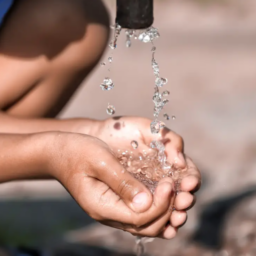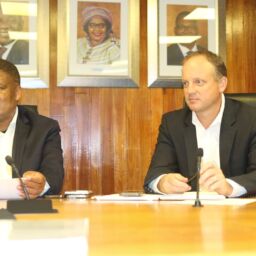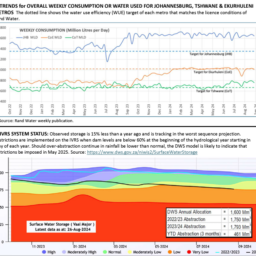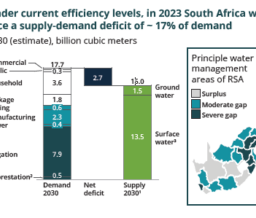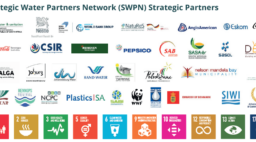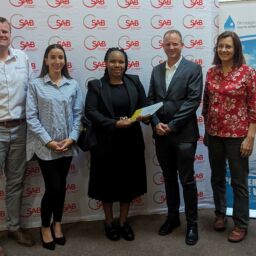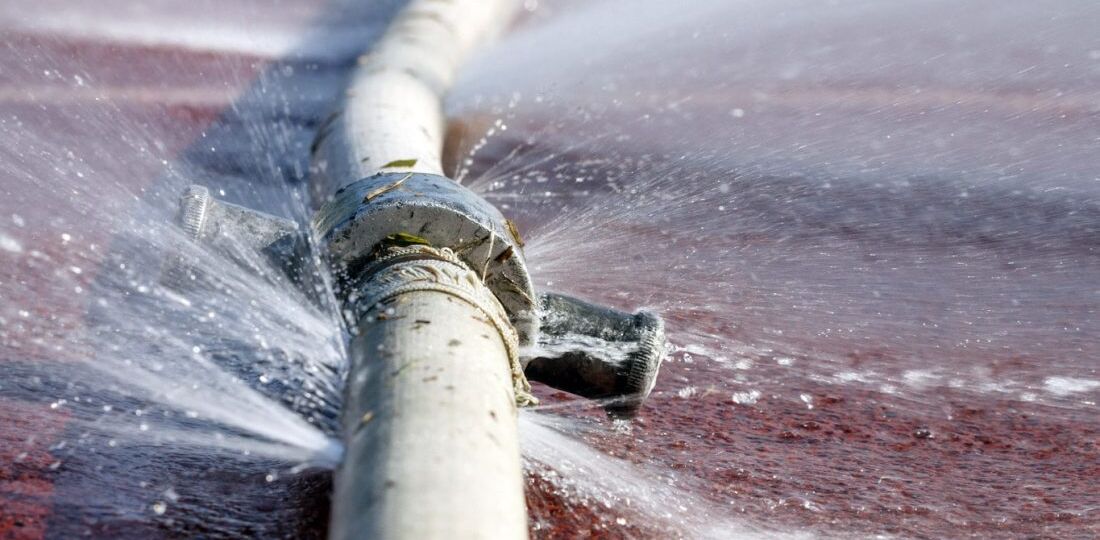
On September 3, 2024, the Strategic Water Partners Network (SWPN) hosted a pivotal meeting focusing on Non-Revenue Water (NRW) in South Africa. The meeting brought together stakeholders from various sectors to discuss the ongoing challenges and potential collaborative solutions for water management in the country.
In discussion in this meeting, a survey was introduced and can be completed here to collect detailed information on the water risks and challenges businesses and municipalities face. This survey will assist SWPN in mapping water risks, prioritising interventions, and fostering collaboration for long-term sustainability.
The SWPN Non-Revenue Water Task Team Meeting: Tackling South Africa’s Water Crisis
The meeting began with a warm welcome from Michelle Proude, SWPN Programme Officer, and Peter Varndell, CEO of the NEPAD Business Foundation, host of the SWPN. Peter emphasised the critical nature of NRW and the importance of addressing this issue at the municipal level.
“The rising levels of Non-Revenue Water in South Africa present a significant challenge to our water security. However, through strategic collaboration and innovative solutions, we can make a tangible impact. Today’s meeting is about exploring these opportunities together,” said Peter Varndell.
The session highlighted alarming statistics from the latest “No Drop Report,” revealing that South Africa is losing approximately 1.8 billion cubic meters of water annually due to NRW. This figure represents nearly 40% of the country’s total water losses, with trends showing a continued increase in these losses unless significant interventions are implemented. The report underscores the critical need for efficient water management practices and the urgent necessity for interventions at both the municipal and national levels.
SWPN has been at the forefront of efforts to reduce NRW since its inception in 2011. The network has supported key initiatives, including the development of the “No Drop” Programme, which sets standards for water management, and the creation of performance-based contracts for municipalities. These contracts have been vital tools in assisting municipalities to effectively manage their water resources.
Significant successes have been achieved in municipalities like Polokwane and Nelson Mandela Bay. In Polokwane, for example, the implementation of an NRW strategy led to the development of a comprehensive business plan, the installation of bulk meters, and the execution of pressure management projects, which collectively resulted in significant water savings.
Forging Partnerships for Sustainable Water Management
A core strength of SWPN lies in its ability to convene stakeholders across sectors—government, business, civil society, and development partners—to collaborate on water management projects. The meeting emphasised the role of private sector investment and how technical expertise can be leveraged to improve water infrastructure and reduce losses. The meeting also discussed innovative financial models, including the establishment of a revolving NRW fund, which aims to reinvest savings from water reduction projects back into further water-saving initiatives.
Ongoing Projects and Future Directions
SWPN’s ongoing work includes a range of projects aimed at improving water security through the reduction of NRW. These projects include retrofitting initiatives in Johannesburg, pressure management in various municipalities, and exploring new Memoranda of Understanding (MOUs) with various municipalities like Rustenburg and Tshwane.
One of the key future directions discussed was the expansion of the NRW fund, which is envisioned to become a self-sustaining resource that supports ongoing and future water-saving projects. This fund is crucial for scaling successful interventions across more municipalities, particularly those in economically disadvantaged areas.
Stakeholder Engagement and Collaboration
Throughout the meeting, participants from business, government, and civil society highlighted the importance of addressing broader water challenges in addition to NRW. Issues such as water quality, infrastructure reliability, and the risk of water shortages in key economic sectors were brought to the forefront. The discussion underscored the need for continued public-private partnerships and the alignment of corporate social responsibility (CSR) projects with municipal water management goals.
“The high level of participation in today’s meeting is a testament to the collective commitment we all share in addressing South Africa’s water challenges. It’s encouraging to see so many sectors represented, which strengthens our ability to collaborate effectively and create meaningful impact. Together, we can transform these discussions into actionable solutions,” said Alyssa Jooste, Private Sector co-chair of the SWPN
.
A survey was introduced and can be completed here, by participants to collect detailed information on the water risks and challenges faced by businesses and municipalities. This survey will assist SWPN in mapping water risks, prioritising interventions, and fostering collaboration for long-term sustainability.
Q&A: Key Questions and Answers from the Session
The session included a robust Q&A segment where various stakeholders raised important questions and concerns. Below are some of the key questions addressed:
Q1: Why is Non-Revenue Water (NRW) the primary focus of SWPN’s interventions?
A1: NRW is a critical issue because it directly impacts the financial sustainability of municipalities. By reducing NRW, municipalities can recover revenue, reduce operational costs, and reinvest in other essential water infrastructure projects.
Q2: What are the main challenges beyond NRW that South Africa faces in water management?
A2: Other key challenges include water quality issues, unreliable water supply due to ageing infrastructure, and the risk of water shortages, particularly in drought-prone areas. These challenges require a multi-faceted approach, including public awareness campaigns, infrastructure investment, and enhanced regulatory frameworks.
Q3: How can businesses and private sector entities contribute to addressing these water challenges?
A3: Businesses can play a significant role by investing in water-saving technologies, participating in performance-based contracts, and aligning their CSR initiatives with municipal water management goals. Additionally, businesses can help by participating in public-private partnerships that focus on reducing water risks in their operational areas.
Q4: What are the next steps for SWPN in terms of project development and stakeholder engagement?
A4: SWPN will continue to develop and implement NRW projects across various municipalities, with a focus on expanding successful models like those in Polokwane and Nelson Mandela Bay. The network will also work on establishing the NRW fund and conducting roadshows to engage more municipalities and potential partners.
Q5: How will the information from the upcoming survey be used?
A5: The survey results will help SWPN map the current water risks and challenges across the country, prioritise interventions and identify potential areas for collaboration. This data will be crucial in refining SWPN’s strategy and ensuring that interventions are targeted and effective.
The SWPN Non-Revenue Water Task Team meeting was a significant step forward in addressing South Africa’s water challenges. With continued collaboration, innovative solutions, and strategic investments, there is hope for improving water security and resilience across the country. SWPN remains committed to working with all stakeholders to achieve these goals.


